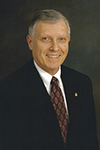“Only do what only you can do” – Paul Sloane
This quote from Paul Sloane (author of several books about ‘lateral thinking’) has been the most provocative and impactful lesson I have had to learn in my professional career. “Get the monkeys off your back” (perhaps taken from a quote by Anne Lamott) ranks a very close second, related to the same subject, ‘managing your own time’.
Become a Master of Managing Your Own Time
Since the only commodity we, as design professionals, have to ‘sell’ is TIME, I think we owe it to ourselves to learn how to master managing our own time. The better we become at mastering our own time, the better example we set for those in our organization, even if you’re not the ‘boss’. The goal being: everyone becoming a master of managing their own time.
I must thank and give credit to my former employer, Art Gensler, for my initial introduction to this critically important work habit. It was certainly a ‘gift’, but it was also mandatory if I had any hopes of becoming a principal in Art’s firm. The gift came in the form of a weekend in Long Beach, attending a two-day workshop on the art of managing your own time, an essential tool for any person with the responsibility of managing others. It was at this workshop entitled, “Get the monkeys off your back” that I heard for the first time, Paul Sloane’s quote. I can’t recall if proper credit for the quote was ever mentioned; at least I have never remembered being told it was his quote. I have worked diligently at mastering this essential work habit and I always referred to Sloane’s quote in my work with other design professionals.
I must thank and give credit to my former employer, Art Gensler, for my initial introduction to this critically important work habit.
My inspiration for this article comes from a 30-minute spiritual program I watched a few weeks ago. The focus of the message was “Grace in competition”. The Pastor used the message that Paul gave to the Galatians (6:4-5) that reminded me of this, my favorite of Sloane’s quotes. In lay terms what Paul was communicating to his audience was the Pastor’s paraphrase of this biblical passage:
“First and foremost, pay careful attention to your own work; not that of others, for then you will get the satisfaction of a job well done, and you won’t need to compare yourself to anyone else; for we are responsible for our own conduct.”
This statement brought to mind Sloane’s quote, “only do what only you can do”. Several years after I left the firm and had been providing my services to other design professionals, I added an extension to this quote, to give it a specific focus on how to make this work habit more impactful. The extension is: “…, and delegate the rest”.
…And Delegate the Rest
With this extension, I have been able to ‘link’ Sloane’s quote with the lessons learned in the workshop to “get the monkeys off my back”. In this ‘challenge’, it makes it clear to others who would approach their first line supervisor, or project manager, or the boss, that “we have a problem”; referring to some issue they are having and can’t get it resolved on their own. The response from the person approached would be “Sorry, but ‘we’ don’t have a problem, you have a problem and it’s not my responsibility to fix it for you (only do, what only you can do). I would be willing to listen to your suggested solutions to your problem and assist (empower) you in determining the best solution available. So come back with 2-3 of the best available options and we’ll go from there” (getting the monkey off my back).
When a manager/supervisor/boss accepts the responsibility to solve the problem, they are not only enabling the staff member, they are eliminating the possible growth and development of that employee. They are essentially saying to this individual “OK, you’re not smart enough, or have the ability to think through this problem to access possible solutions, but I can and will”. That is a stifling mentality and an environment filled with toxic attitudes, starting with the ‘enabler’s’ ego and sense of self-importance; which is merely their own inadequacies.
It’s Own Reward
The Pastor went on to express the importance of learning to not give in to the sense of ‘futility’, or ‘frustration’ that a monotonous repetition of life gives you. Instead, regardless of how significant or insignificant one feels their life is, just ‘do your best’; for “hard work is its own reward” (e.g.: the daily toils and tribulations of a farmer; who has the responsibility of doing the same job every day and in some instances like a dairy farmer, twice a day). So, give it your best, as your best offering and learn to carry your own weight. Learn to make the most of what you have and that will be the best you can do.
 Steve L. Wintner, AIA, Emeritus, a licensed architect), retired (1968-1985). Over the course of his 60-year career, Steve served as the managing principal of a small firm partnership and later as the VP/Director of Operations for two of the largest architectural firms in the country, at that time. Retiring from active practice in 1985, Steve started his second career as a management consultant, with a commitment to make a difference in the professional design industry by assisting other design professionals achieve their goals through his body of knowledge and experience as a managing architect.
Steve L. Wintner, AIA, Emeritus, a licensed architect), retired (1968-1985). Over the course of his 60-year career, Steve served as the managing principal of a small firm partnership and later as the VP/Director of Operations for two of the largest architectural firms in the country, at that time. Retiring from active practice in 1985, Steve started his second career as a management consultant, with a commitment to make a difference in the professional design industry by assisting other design professionals achieve their goals through his body of knowledge and experience as a managing architect.
Steve’s commitment to the profession has lead to developing a series of professional development workshops which have been presented to national, state and local AIA components, and individual professional design firms, since 1993. His financial management workshop, titled, ‘The Path to Profitability’ became the basis of the book he co-authored with Michael Tardif, Assoc. AIA, Financial Management for Design Professionals: The Path to Profitability. The second printing of the expanded book will be self-published in 2017, as an e-book, or as a hard copy, on request.
Steve may be contacted directly on Linkedin, at his website, by email or at the mobile telephone number on his website.
Photo Credit: Shutterstock / isak55

Mark, thank you for posting this article, much appreciated.